Table of Contents
Brief Life Sketch of Froebel:
Friedrich August Froebel, the founder of the Kindergarten System was born on April 21, 1783, in South Germany. His mother died when he was only nine months. His father neglected him and got remarried. This made his childhood all the more miserable. One of his maternal uncles adopted him and took him to his village. He was sent to the village school but could not pull on well. This resulted into his leaving the school. At the age of fifteen he became an apprentice to a forester. For two years he worked in the forest. He studied in the University of Jena for two years. He picked up his love for nature, for man and for the supreme spirit in him. After trying many professions he became a teacher. He established his own school in Switzerland and Germany where he conducted many useful experiments. He spent his life in promoting the happiness of children. He attached much importance to the early training of children. His sole purpose in life can be summed up in his famous saying, “Come, let us live for our children”.
Some of his famous books on Education are- the education of man, pedagogies of kindergarten, mother plays and nursery songs, education by development.
Froebel Philosophy:
Froebel’s philosophy is a philosophy of absolute idealism. He was influenced by the idealistic philosophy of great German idealists like Kant, Hegel and Fichte. Like these idealists, Froebel believed that God is the originator of nature and all living objects in the universe. All things have arisen from God and all things live in God. God is the all-comprehending, the all-sustaining. God is the essential nature, the meaning of the world. He is the essence of all things.
The following are the main tenets (principles) of Froebel’s Philosophy:
Principle of Unity:
Froebel believed in the principle of unity. He said that there is unity in everything. There is a unity of man, nature and God. There is unity in diversity. According to Froebel, an Eternal Law pervades in all things and binds them together. This all-pervading law is based on eternal unity. This eternal unity is god. Hence all things come from divine unity i.e., God. He remarked, “In everything there works and stirs one life, because to all, one God has given life”. God is the sole source of all things. This unity, according to Froebel, is of three types-
- Unity of Substance- Man and nature are made of one substance i.e. the spirit or soul which animates both.
- Unity of Origin- All things originate from one source i.e. God.
- Unity of Purpose- There is a common purpose in all things of the world i.e. to strive towards perfection i.e. God.
Principle of Evolution or Development:
Froebel believed that evolution or development takes place continuously according to the laws of inner growth and unity. It develops without any external force. There is a common goal of this development i.e. goal of perfection. In the words of Froebel, “Every individual must develop from within, self-active and free, in accordance with the eternal law”.
Principle of Self-activity:
According to Froebel, the real development of the child is possible only through self-activity. Self-activity means activity determined by one’s own motives, arising out of one’s own interests and sustained by one’s own power. An atmosphere of freedom is essential for the self-activity of the individual. It gives joy and contentment. It is through self-activity that the child realizes his own nature and develops his own individuality. It is through this activity that he enters into the life of others and life is around him.
Principle of development of individuality through social setting:
Society is essential for the development of child’s personality. Child is to live in society. According to Froebel, every social institution like family, church, school, state is a place for activity of the individual and through these institutions proper development of personality takes place.
Principle of Symbolism:
Froebel believed in the use of signs and symbols. These symbols will help children understanding the connection between mind and matter. This principle of symbolism underlies the choice of gifts (devised by Froebel) to be presented to the children to play with.
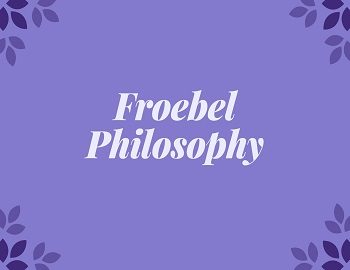
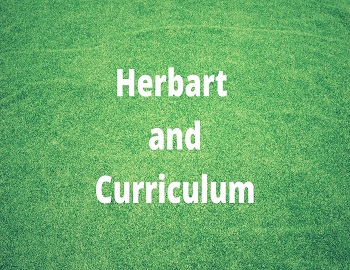
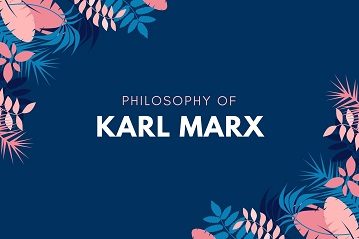
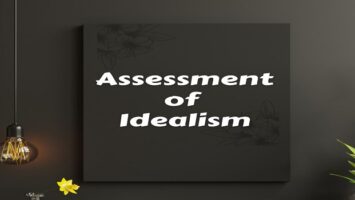
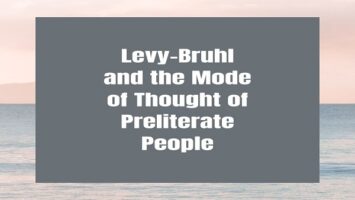
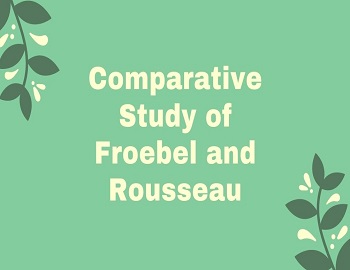


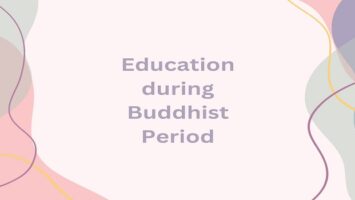
Comments (No)